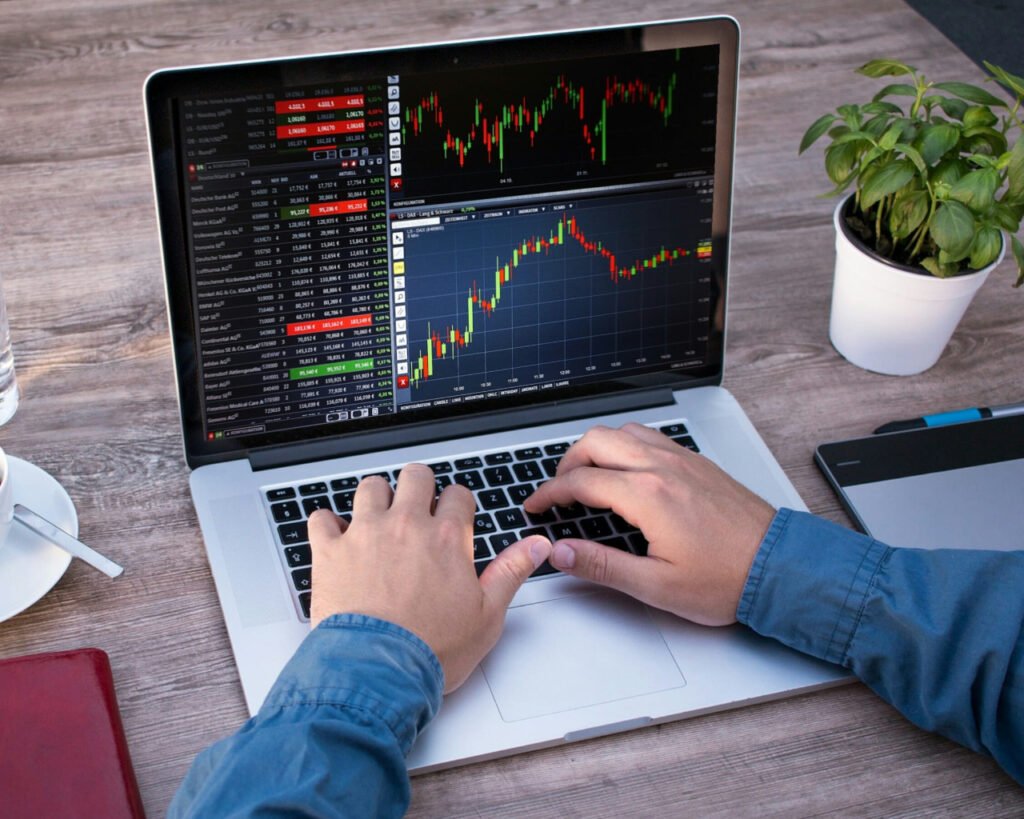Forex Trading Guide 2024

1. Understanding Forex Trading
Forex (foreign exchange) trading involves buying and selling currencies in the foreign exchange market with the aim of making a profit. The forex trading guide market is the largest and most liquid financial market in the world, open 24 hours a day, five days a week. Forex trading guide 2024.
2. Basic Concepts
- Currency Pairs: Forex trading guide 2024 is done in pairs, such as EUR/USD, where you buy one currency and sell another.
- Pips: The smallest price move that a given exchange rate can make, typically 0.0001 for most currency pairs forex trading guide 2024
- Leverage: Allows traders to control a large position with a small amount of money, magnifying both potential gains and losser.
- Margin: The amount of money required to open a position, serving as a security deposit for the trade.
- Spread: The difference between the bid (sell) price and the ask (buy) price. http://www.botsfirm.com.
3. Key Players in the Forex Market
- Central Banks: Influence the forex market through monetary policy and interest rates.
- Banks and Financial Institutions: are major players that provide liquidity to the market.
- Hedge Funds: Large funds that engage in speculative forex trading.
- Retail Traders: are individual traders who trade through brokers. forex trading guide 2024
4. Types of Forex Markets
- Spot Market: Immediate currency exchange at current prices.forex exchange
- Forward Market: Contracts to exchange currencies at a future date and set price.https://mindplanets.in/
- Futures Market: Standardized contracts to buy or sell currencies at a future date and price.
5. Developing a Trading Strategy

- Fundamental Analysis: Analyzing economic indicators, interest rates, and political events to predict currency movements.
- Technical Analysis: Using historical price charts and indicators to identify patterns and make trading decisions.Forex trading guide 2024
- Sentiment Analysis: Gauging the mood of the market to make trading decisions.
6. Common Trading Strategies
- Scalping: Making numerous small trades to profit from minor price movements.
- Day Trading: Buying and selling within the same trading day to capitalize on short-term price movements.
- Swing Trading: Holding positions for several days to profit from expected price changes.
- Position Trading: is a long-term strategy based on fundamental analysis that involves holding positions for weeks or months.http://www.fxplanets.com
7. Risk Management
- Stop-Loss Orders: Automatically close a position at a predetermined loss level to limit risk.
- Take-Profit Orders: Automatically close a position at a predetermined profit level.
- Position Sizing: Determining the amount of capital to risk on a single trade.
- Diversification: Spreading investments across different currency pairs to reduce risk.
8. Choosing a Forex Broker
- Regulation: Ensure the broker is regulated by a reputable financial authority http://www.botsfirm.com
- Trading Platform: Choose a broker with a user-friendly and reliable trading platform.
- Fees and Spreads: Compare fees, spreads, and commission rates.
- Customer Service: Good customer support can be crucial for resolving issues.
9. Setting Up a Trading Account
- Demo Account: Practice trading with virtual money to understand the platform and develop your skills.
- Live Account: Start trading with real money, initially with a small amount to mitigate risk.
- Margin: The collateral required to open and maintain a leveraged position.Forex trading guide 2024
10. Tips for Successful Trading
- Education: Continuously learn about forex trading and market trends.
- Discipline: Stick to your trading plan and avoid emotional trading.
- Keeping Records: Maintain a trading journal to track your performance and improve strategies.
- Staying Updated: Keep up with global financial news and events that can impact currency prices.
Conclusion
Forex trading can be highly profitable but also carries significant risks. It’s essential to educate yourself, develop a solid trading plan, and practice good risk management. By staying informed and disciplined, you can navigate the complexities of the Forex trading guide 2024 .
How Forex Trading Works
- Currency Pairs: Currencies are traded in pairs (e.g., EUR/USD, GBP/JPY). The first currency is the base currency, and the second is the quote currency.
- Exchange Rate: The price at which one currency can be exchanged for another.
- Leverage: Forex brokers often offer high leverage, allowing traders to control large positions with relatively small amounts of capital.
- Market Hours: The forex market is open 24 hours a day, five days a week, due to the overlapping trading sessions of major financial centers worldwide.
Basic Concepts
- Pips: The smallest price move in a currency pair, typically the fourth decimal place (0.0001).
- Lot Size: The amount of currency units you buy or sell (standard lot, mini lot, micro lot).
- Spread: The difference between the bid (buy) and ask (sell) prices.
- Margin: The collateral required to open and maintain a leveraged position.Forex trading guide 2024
Types of Analysis
- Technical Analysis: This involves analyzing price charts and using indicators to predict future price movements.
- Fundamental Analysis: Focuses on economic indicators, interest rates, and geopolitical events that can impact currency values.
Popular Strategies
- Scalping: Making many small trades to capture minor price movements.
- Day Trading: Entering and exiting positions within the same trading day.
- Swing Trading: Holding positions for several days to take advantage of medium-term market moves.
- Position Trading: Long-term trading based on fundamental analysis Forex trading guide 2024.

Risks and Rewards
- High Risk: Due to leverage and market volatility, forex trading carries a high level of risk, which can lead to significant losses.
- High Reward: Potential for substantial profits if trades are successful, thanks to leverage and market size.
Getting Started
- Education: Learn the basics through online courses, books, and demo accounts.
- Broker Selection: Choose a reputable forex broker with good reviews and proper regulatory licenses.
- Demo Trading: Practice trading with a demo account to build skills without risking real money.
- Trading Plan: Develop a trading plan that includes risk management strategies.
Important Considerations
- Regulation: Ensure your broker is regulated by a reputable financial authority (e.g., CFTC, NFA, FCA).
- Risk Management: Use stop-loss orders, set risk-reward ratios, and never risk more than you can afford to lose.4
- Margin: The collateral required to open and maintain a leveraged position.Forex trading guide 2024
- Stay Informed: Keep up with global news and economic indicators that can impact the forex market.
If you have specific questions or need further details on any aspect of forex trading, feel free to ask!

